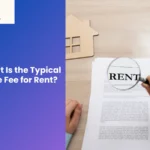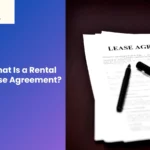As a California landlord, understanding the Fair Housing Act isn’t just good practice—it’s legally required. The Fair Housing Act, combined with California’s Fair Employment and Housing Act (FEHA) and the Unruh Civil Rights Act, protects renters from discrimination and ensures equal access to housing. Whether you own a single-family home, an apartment complex, or a mobile home park, these rules apply to you.
Should you care about the Fair Housing Act? Yes, violating Fair Housing Laws will lead to costly lawsuits, administrative complaints, or penalties from agencies like the California Department of Fair Employment and Housing (DFEH). Beyond legal risks, discrimination claims can damage your reputation and limit your ability to attract quality tenants.
California’s laws go further than federal rules, banning bias based on source of income (like Section 8 vouchers), citizenship status, gender identity, and even a tenant’s primary language. Ignorance isn’t an excuse—landlords must proactively learn these rules to avoid accidental violations, whether in advertising, tenant screening, or handling reasonable accommodations for disabilities.
History of Fair Housing Act
The Fair Housing Act (FHA) began as part of the Civil Rights Act of 1968 (Title VIII) at the federal level, banning housing discrimination based on race, religion, national origin, and sex. California expanded these protections with its own laws, like the Unruh Civil Rights Act and the Fair Employment and Housing Act (FEHA), which added safeguards for groups like LGBTQ+ individuals, people with disabilities, and renters using Section 8 vouchers or other housing subsidy programs.
Over time, amendments like the 1989 Fair Housing Amendments Act added protections for families with children (familial status) and people with disabilities. Today, California landlords must follow both federal and state laws, which are stricter than national rules. For example, discriminating against tenants based on their source of income (like rental assistance) or primary language is illegal here, even if it’s allowed elsewhere.
What is Prohibited in the Fair Housing Act?
Under California’s Fair Housing Act and related property management laws, landlords cannot discriminate against tenants or applicants based on protected classes, which include race, religion, disability, gender identity, source of income (like Section 8 vouchers), and even primary language.
California’s FEHA is even stricter than federal law, with broader protections and stronger enforcement through the California Civil Rights Department (CRD). Here’s what you’re legally prohibited from doing as a property owner:
- Refusing to Rent or Negotiate: You can’t reject a tenant, falsely claim a unit is unavailable, or set stricter terms (like higher rent) because of their protected status.
- Discriminatory Advertising: Avoid phrases like “perfect for young professionals” or “no Section 8” in listings. Even subtle preferences for certain groups can lead to administrative complaints.
- Ignoring Disability Needs: You must allow reasonable accommodations (e.g., a reserved parking spot for mobility issues) and permit reasonable modifications (like installing grab bars), though tenants may cover costs, and allow you to keep a guide dog for a visually impaired person.
- Steering or Blockbusting: Don’t guide tenants toward/away from certain units or neighborhoods based on protected traits (steering). You also can’t scare landlords into selling by claiming protected groups are moving in (blockbusting).
- Retaliation: Penalizing tenants who file discrimination complaints (e.g., raising rent or refusing repairs) is illegal.
What Type of Housing is Covered by Fair Housing Act?
The Fair Housing Act (FHA) covers most privately or publicly owned residential housing, including rental units, single-family homes, condos, and housing developments. This applies to rentals, sales, and housing-related transactions. However, owner-occupied buildings with four or fewer units, single-family homes rented without a broker, and religious or private clubs with housing may be exempt in some cases.
Key exemptions in California:
- Senior Housing: Properties meeting strict age requirements (e.g., 55+ communities) can exclude families with children.
- Private Clubs/Religious Organizations: Housing reserved for members (e.g., a church-owned rental for parishioners).
- Single-Family Homes: Only if you’re renting a room in your own home (owner-occupied) and don’t use discriminatory ads.
Important note: Mobile home parks have unique rules. While some senior parks may qualify for exemptions, most must comply with all familial status protections.
Penalties of Violating Fair Housing Law
Ignoring California’s Fair Housing Rules can lead to severe financial and legal repercussions. The penalties can come from different sources: administrative complaints, lawsuits, or agency actions. Here’s what you risk as a landlord on violating Fair Housing Law:
Monetary Damages
- Actual Damages: Compensate tenants for costs like temporary housing or emotional distress.It may include the amount the tenant spends on finding another place to stay.
- Punitive Damages: Fines up to $10,000+ (or more for severe cases) to punish intentional discrimination.
- Attorney Fees: You’ll likely cover the tenant’s legal costs if they win a lawsuit.
Non-Monetary Penalties
- Mandatory Renting: Courts can force you to rent to the tenant you rejected.
- Training Requirements: You may need to attend fair housing courses.
- Public Scrutiny: Discrimination cases often attract negative media attention, harming your reputation.
DFEH Actions
The California Department of Fair Employment and Housing (DFEH) or HUD can investigate complaints and impose civil penalties (up to $10,000 for first-time federal violations, $25,000 if committed another violation within 5 years, and $50,000 if found 2 or more discriminatory housing practices during the 7 years of period.).
Local Fair Housing Protections in Los Angeles
As a landlord in Los Angeles, you must follow both California state laws and local ordinances that add extra layers of tenant protections. These rules aim to address unique housing challenges in the city, such as affordability and diversity.
Key Los Angeles-Specific Rules:
- You cannot reject applicants based on Section 8 vouchers, disability benefits, or other legal income sources. Unlike some cities, L.A. strictly enforces this rule—even refusing to process a voucher application is illegal
- The Los Angeles City Council has voted for the Fair Chance Housing Ordinance while the County of Los Angeles has enacted a Fair Chance Ordinance for Employers. The ordinance is not fully revived yet but on revival of the Fair Chance Housing you can’t ask about criminal records until making a conditional rental offer. Even then, denying housing based on past convictions (except registered sex offenders) may violate local law.
- L.A. bans discrimination based on immigration status (e.g., requiring a Social Security number) and student status (e.g., refusing to rent to college students).
Los Angeles’ Landlord Responsibilities Under Fair Housing Act
As a California landlord, you’re legally required to ensure your rental practices align with fair housing laws. Here’s what you must do to stay compliant:
- Avoid language that excludes protected groups. Phrases like “no kids” or “ideal for quiet professionals” imply bias against familial status or age, which is illegal.
- Use inclusive terms (e.g., “spacious 2BR near parks” instead of “perfect for families”).
- Apply the same screening criteria (credit checks, income requirements) to all applicants.
- Never ask about protected traits like disability, citizenship status, or genetic information on applications.
- Adjust rules or policies for tenants with disabilities. Example: Waiving a “no pets” policy for a service animal.
- Permit reasonable modifications (e.g., wheelchair ramps) at the tenant’s expense, unless it’s structurally unsafe.
- Offer identical lease terms, deposits, and amenities to all tenants. Charging higher rent or deposits based on source of income (e.g., Section 8) is illegal.
- Ensure property managers, leasing agents, and maintenance workers understand fair housing rules. A single employee’s discriminatory act can lead to lawsuits against you.
- You must accept rental assistance programs as valid income.
- Provide translated lease agreements if a tenant’s primary language isn’t English (required in some cities like L.A.).
How to Avoid Discrimination When Choosing Tenants in Los Angeles?
Selecting tenants fairly isn’t just ethical—it’s legally required. Follow these steps to minimize risks and comply with California’s strict fair housing laws:
- Use Standardized Criteria:
- Create a written checklist of legitimate business reasons for rejecting applicants (e.g., credit score below 650, eviction history, or insufficient income). Apply these rules consistently to everyone.
- Avoid Prohibited Questions:
- Never ask about protected traits like disability, immigration status, or plans to have children. Stick to neutral topics like rental history and income.
- Example: Instead of “Do you have any medical conditions?” ask, “Are you able to meet the lease terms?”
- Handle Screening Fees Properly:
- Charge the same screening fee (capped at $59.93 in 2024) to all applicants. Provide receipts and refund unused portions if you process checks after approving a tenant.
- Document Everything:
- Keep records of all applications, communications, and reasons for rejections. If challenged, you’ll need proof that decisions were based on objective criteria, not protected classes.
- Train Your Team:
- Ensure property managers and agents know they can’t make comments like, “This neighborhood isn’t safe for families” or “We prefer tenants without pets.” Even casual remarks can lead to DFEH complaints.
- Accept All Legal Income Sources:
- Treat Section 8 vouchers, disability benefits, or gig economy income the same as traditional paychecks. Rejecting a tenant because they use a housing subsidy is illegal.
Pro Tip:
If a tenant requests a reasonable accommodation (e.g., a live-in aide for a disability), respond promptly in writing. Delays can be seen as discrimination.
Can Sky Bridge Group Help Landlords in Fair Housing Act Compliance?
Yes, our managers, agents, and brokers are well-trained and aware of California real estate compliances. We are detail oriented to California real estate rules and regulations when it comes to ensuring landlords comply with the Fair Housing Act. Our team stays up to date with California’s real estate laws, making sure you avoid legal pitfalls and potential discrimination claims. By working with Sky Bridge, the best local property management company, you can have peace of mind knowing that your rental business follows the law while treating all tenants fairly.







